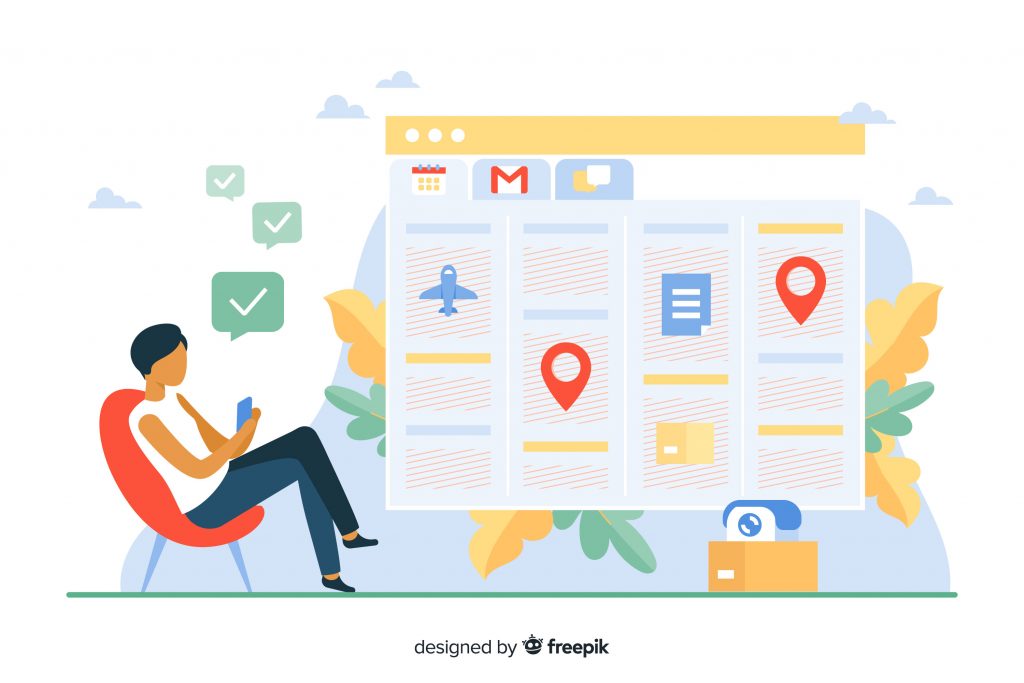Are you tired of seeing your competitors outrank you in local search results, despite having a great product or service to offer?
Do you want to improve your online visibility and attract more customers from your local area, but don’t know where to start?
We know how frustrating it can be to put time and effort into your marketing strategy, only to see little to no improvement in your search rankings. It can be disheartening to see your competitors outranking you in local search results, even if you have a great product or service to offer.
That’s why we created our local SEO masterclass guide, designed to help local business owners improve their online visibility and attract more customers from their local area.
Our guide covers everything from optimising your Google My Business profile to building high-quality local backlinks and creating location-specific content.
With our guide, you’ll learn the latest and most effective techniques for improving your local search rankings and driving more traffic to your website. We’ll provide you with step-by-step instructions, helpful tips, and real-world examples to help you put our strategies into practice.
What is Local SEO?
Local search engine optimisation is all about improving your business’s visibility and attracting more customers from your local area. It involves a variety of tactics, such as optimising your website and Google My Business profile, building local backlinks, and creating location-specific content.
Why is Local SEO Important?
I don’t want to bore you with a bunch of dry statistics, but I do have some pretty interesting numbers to share with you.
These figures highlight just how vital SEO can be for local businesses:

29% of all Google SERPs contain a local pack in the results
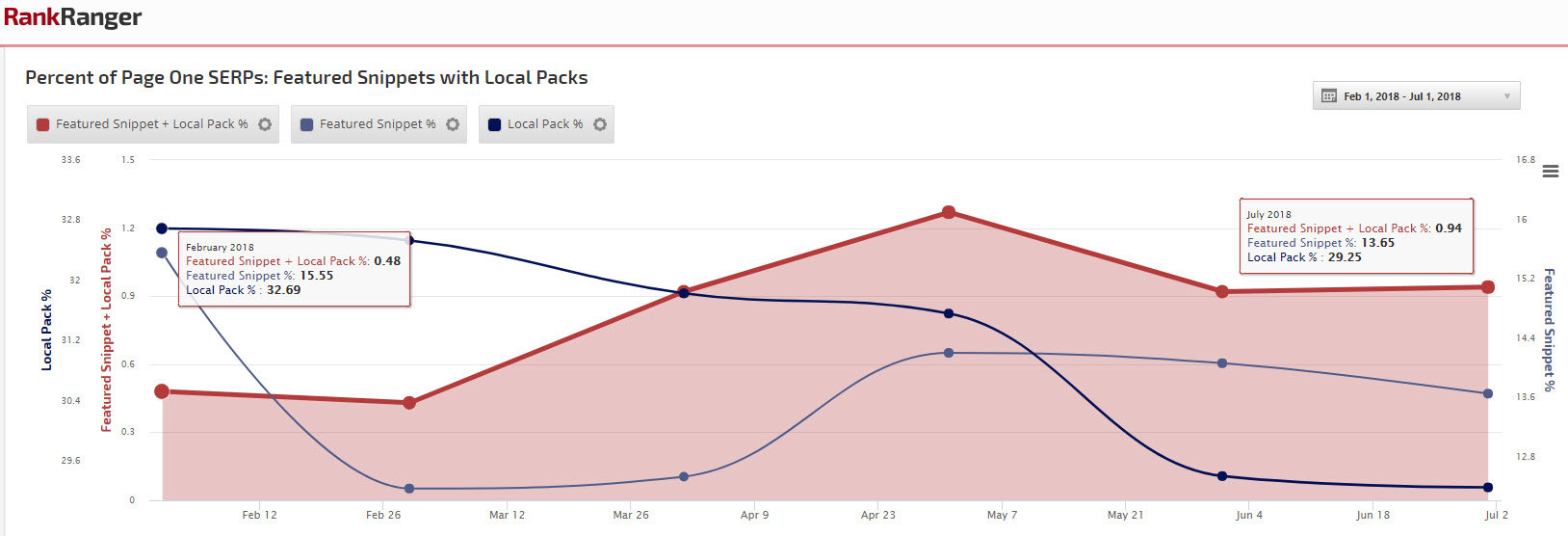

How Does Local SEO Work?
Local SEO operates much like the standard Google search that we all know and love.
When a person enters a query, Google sifts through its index to provide the best results for that individual’s search.
However, SEO is a bit of a rebel, playing by its own set of rules when it comes to ranking factors.
As a matter of fact, local rankings operate with their own set of unique ranking signals, which includes:
- The location of the searcher
- NAP citations
- The presence of a Google My Business listing
- The keywords featured in a Google My Business profile
- The sentiment of online reviews
- The keywords used in online reviews
- The number of check-ins at the business location
- Social media shares associated with the location
- The Google Maps star rating for the business
Benefits of Local SEO
Surely, by now you must be very eager to learn about all the benefits of local rankings. But don’t worry, right below I will list the key benefits for you:
1 – Enhanced Traffic
Did you know that local information is the focus of 46% of all Google searches?
For businesses of all sizes, traffic is essential. Whether you run a large corporation or a small salon on the corner, a strong online presence can help you attract more customers and grow your business. You can improve your website’s visibility and reach more potential customers in your area. By targeting local audiences, you can drive more relevant traffic to your site and increase the chances of converting visitors into customers.
2 – Improved Conversion Rates
One of the key advantage is your ability to attract potential customers to your website and increase your conversion rate.
In fact, according to a study by Joel House Search Media, 28% of local searches result in sales.
By focusing on local keywords and optimising your online presence for local search, you can drive more relevant traffic to your site and increase your chances of converting visitors into customers.
When you position your business as a local expert, you can build trust and credibility with local clients who are ready to buy. By catering to the preferences of local searchers, who often prefer to support local businesses over distant or impersonal options, you can establish your business as a go-to destination for their needs.
3 – Less Advertising Costs
Local businesses thrive on local customers. That’s why many of them invest in costly advertising channels like banners, pamphlets, and TV commercials.
But what if we told you that you could save a bundle by simply optimizing your SEO?
Research has shown that more than 80% of smartphone users choose the “near me” option when searching for a specific type of business.
By improving your local searches, you can attract more of these local customers and reduce your reliance on expensive advertising. So instead of throwing money at traditional ads, you can invest in your online presence and reap the benefits of targeted, cost-effective marketing.
4 – Long-Lasting Rankings
If someone were to ask you about the benefits of SEO versus traditional marketing, what would you say?
You might point out that while traditional marketing can be costly and short-lived, SEO offers a more sustainable approach to driving traffic and sales.
With Local SEO, you can achieve long-lasting rankings in local search results, allowing you to attract more customers over time without continually pouring money into advertising.
5 – Outperform Your Competition
Investing in Local SEO can give you a leg up on your competitors who rely on traditional marketing methods.
If two companies are selling the same thing, but one is focusing on local SEO while the other is not, the one with better online visibility will likely attract more customers.
When people search for products or services online, they tend to trust and explore the top results on search engine results pages.
By positioning your business as a trusted and reliable provider of products or services in your area, you can stand out from the crowd and attract more customers to your business.
6 – Get More Local Reviews
Did you know that 87% of users read online reviews before deciding to buy from a local business, according to Bright Local?
Positive reviews can help you attract more customers, but you won’t get them unless you have optimised your business for local users.
With effective strategies, you can generate more customer reviews and improve your rankings in search engines. Responding to customer feedback shows that you care about your customers and value their input, which can help you build a positive reputation online. Plus, getting local reviews can benefit your business in other ways too, such as increasing your visibility and establishing your business as a trusted provider of products or services in your area.
7 – Continuous Business Growth
Local search optimisation efforts aim to not only increase traffic to your website but also improve your search engine rankings. This can lead to more marketing and sales opportunities, ultimately resulting in business growth.
By investing time and resources into local searchess, you can attract more potential customers and increase your chances of converting them into loyal customers.
If you want to grow your business, prioritising local metrics is crucial for achieving success.
Google's Map Pack
What is the "Map Pack"?
The Map Pack, also referred to as “The Local Pack,” consists of three local business results, accompanied by a map showcasing their specific locations, retrieved from Google Maps.

For example, when you search “Plumber Lake District”, Google has a Map Pack at the very top of the results. The business with the best local SEO for plumbers appears first.
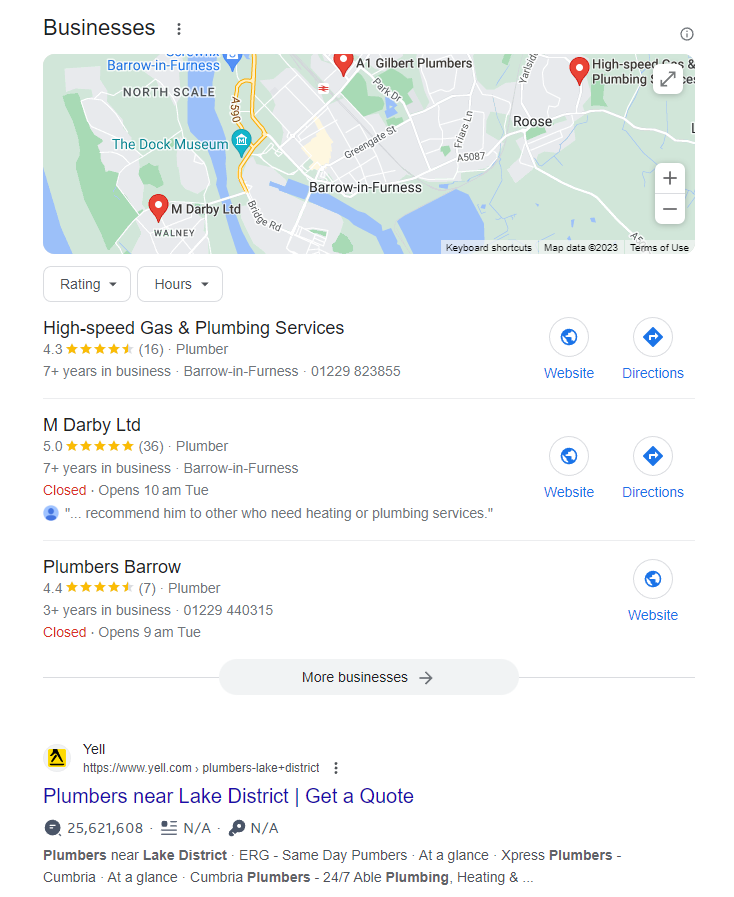
With the SERP search results underneath it –
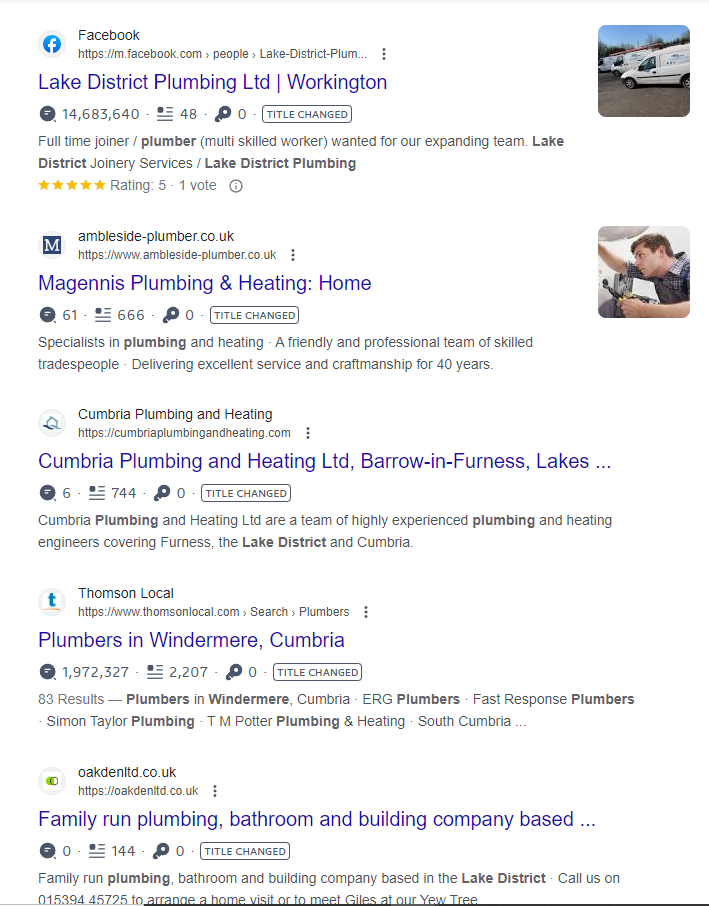
Later in this guide, I will demonstrate how Google ranks businesses in The Map Pack.
However, keep in mind that The Map Pack has its own algorithm with a unique set of rules.
While some ranking factors, like backlinks, can help you rank in local and traditional organic results, others, like NAPs, are mostly important for ranking in The Map Pack.
It’s worth noting that Google doesn’t only display local results for keywords that include a specific city or area.
If Google believes that your search warrants a set of local results, they’ll display it to you, even if the keyword isn’t obviously local.
For example, when I recently searched for “plumber” in the Cumbria, Google presented me with a Map Pack.
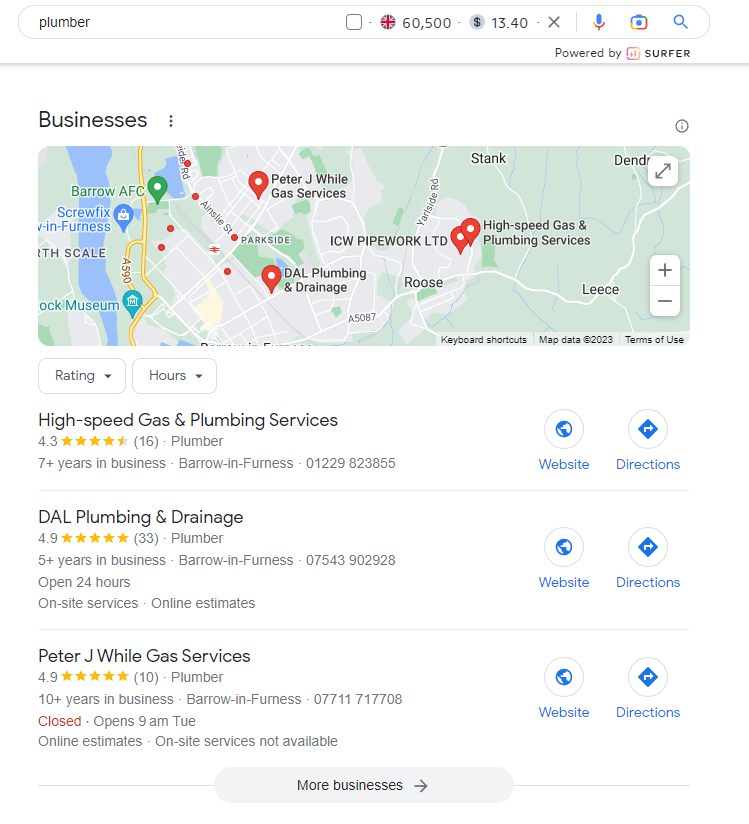
It’s crucial to consider this when conducting keyword research for your local business.
While optimising for “store + area” keywords is essential, in some cases, the more generic “store” keyword without a location can receive higher search volume.
Now that we’ve covered that, let’s move on to tracking your local SEO rankings.
Ways to Monitor Your Map Pack Rankings
Benchmarking your current Map Pack ranking is crucial to any successful local SEO campaign.
This allows you to track your progress over time and see how your efforts are affecting your ranking in The Map Pack.
Luckily, almost every rank tracker available today includes Map Pack tracking, making it easy to monitor your performance in local search results.
The issue is that where you’re searching from can have a huge impact on your results.
In fact, the Map Pack results can vary greatly from one mile to the next. For example, let’s say someone searches for a “coffee shop” on Oxford Road in Manchester.
Those results will be tailored to their exact location.
However, the same search performed a few streets away can bring up a completely different set of Map Pack results, or the same results in a different order.
If you only track your local rankings from a single location (like “Manchester”), you’re only seeing a small sample of where you actually rank in the real world.
That’s why it’s important to get super granular with your local rankings.
By doing so, you can see where you rank across your entire city or local area.
Local Map Pack vs Organic Rankings
If you have a local business, The Map Pack is where you want to focus your attention.
However, it’s also important not to completely overlook the traditional local results.
It’s worth noting that the local organic results typically appear below the Map Pack.
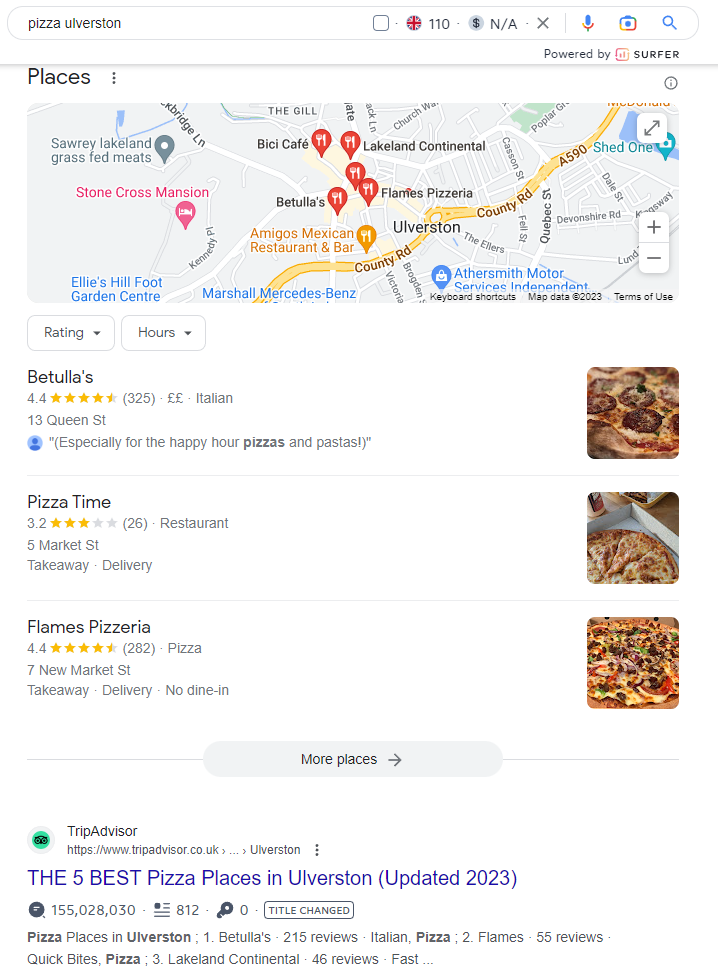
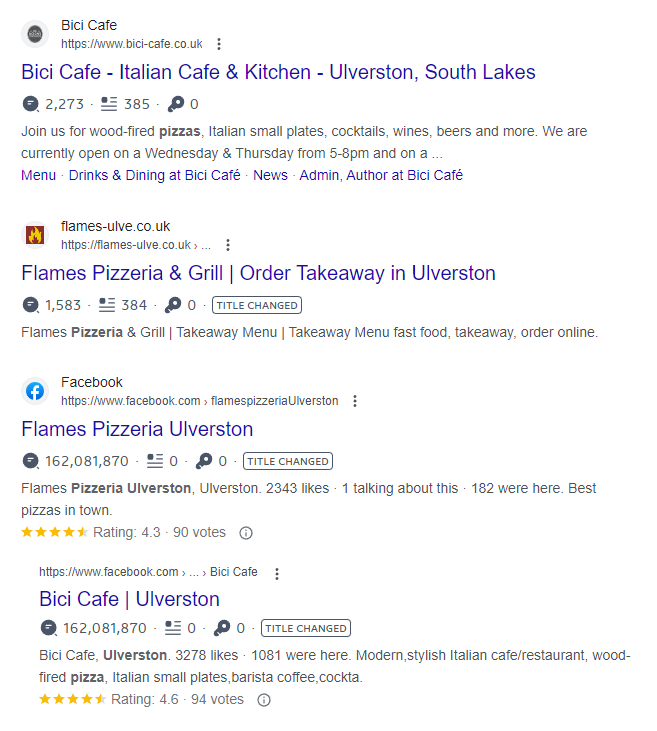
But don’t be deceived into thinking that it’s all about The Map Pack, as local organic results are just as important.
With a strong commercial intent for most local searches, it’s worthwhile to rank in both the local SERPs and The Map Pack.
Unlike The Map Pack, the local results are consistent for any Google SERP, making it easier to optimise your site.
To improve your site’s local organic rankings, utilise your keyword in your title tag, URL, and other traditional on-page SEO techniques.
Basically, everything covered in this video:
Actually, the only unique thing about local organic rankings is how you track them. Remember: “pizza + area” only make up a fraction of all local searches.
So in addition to “Ulverston pizza”, you also want to track your rankings for keywords like “Pizza” and “Pizza near me”.
For example, if you wanted to track rankings for “pizza near me” for people searching in Ulverston, you just need to specify the location in your rank tracking tool of choice:
Local SEO Tools
In this chapter, I’m going to show you how to use local SEO tools to find the right keywords for your business.
Fortunately, keyword research can be a one-time process, unlike a blog where you need to constantly find new keywords.
Even though keywords play a vital role in local searches, you only need a shortlist of relevant keywords that people use to find your local business.
Yelp Suggest
This works the same as Google Suggest.
Type in a keyword that someone in your area might use to find your business…

…and check out the suggested results.
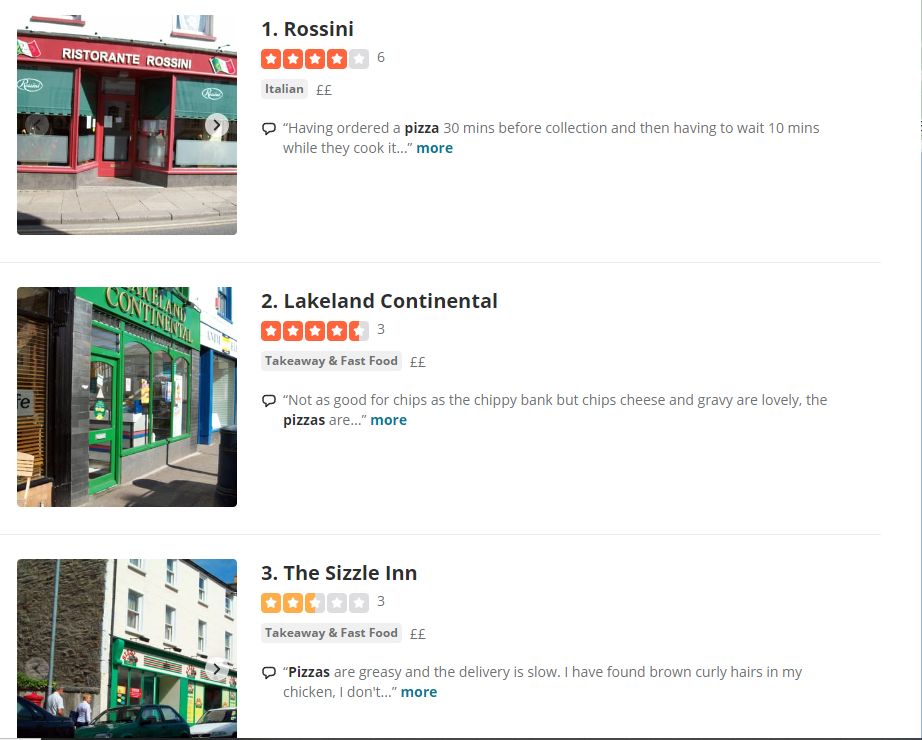
What’s cool about Yelp is that they sometimes show you keywords that don’t contain the term you typed in.
For example, if you search for “Fish and Chips”, they also suggest “Takeaway and Fast Food”.
Google Suggest
Google Suggest can also work well for local searches.
The only thing to keep in mind here is that the local search has to be something that potential local customers are gonna search for.
For example, if you type in “sweet shop”, you get this list of suggestions:
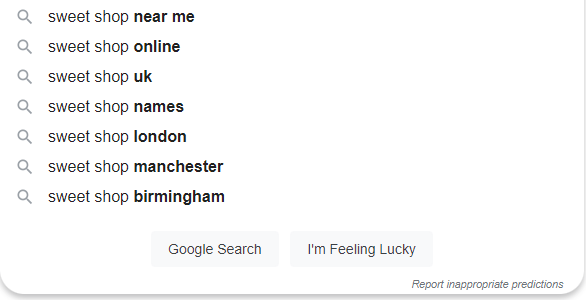
Outside of “near me”, these keywords aren’t a great fit for local SEO.
But when you add a local term, like “sweet shop b”, you start to see keywords that you can use.
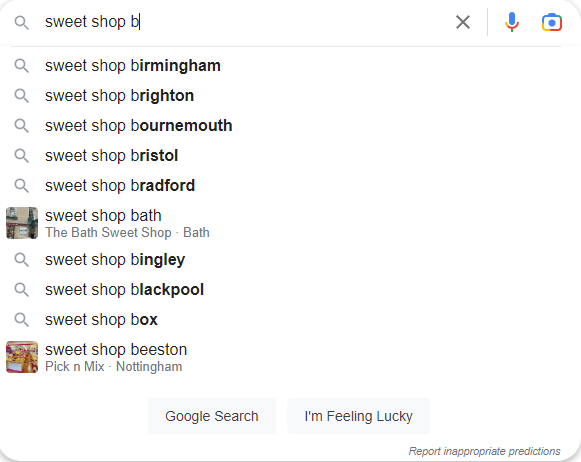
Google Keyword Planner - "Start With a Website"
With Google Keyword Planner, you can obtain search volume data for specific geographical locations.

If you have a list of keywords and want to identify the most promising ones, this feature can come in handy.
However, if you’re looking to discover new keywords, I suggest utilising the “Start With a Website” feature.
Just add in the homepage URL of one of your competitors:
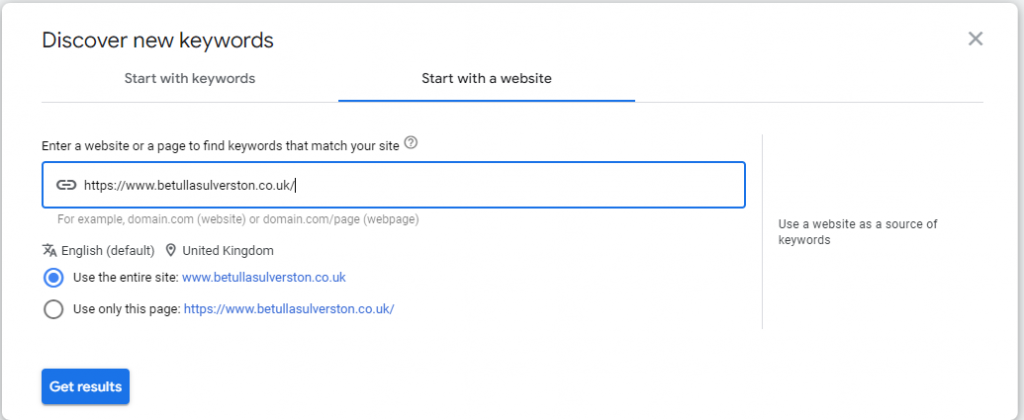
And Google will generate a list of keywords by analysing the phrases and words that are present on the webpage.
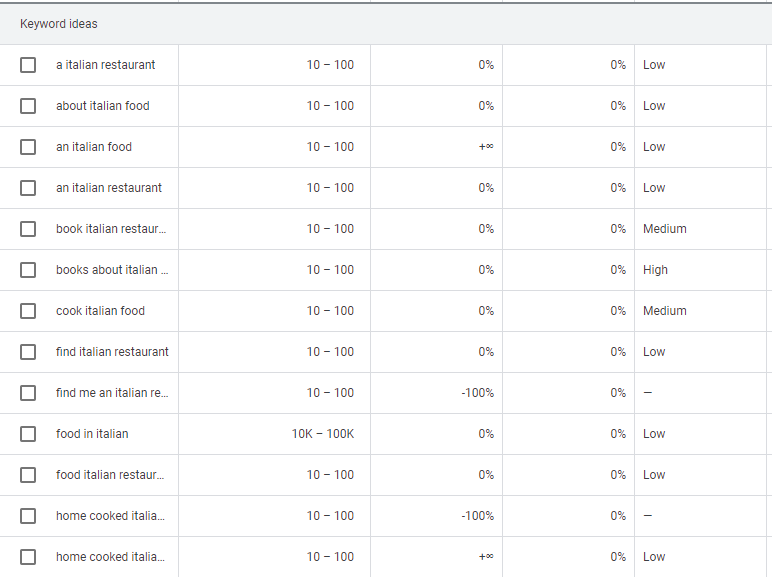
Using SEMrush for Local SEO
SEMrush is a great local SEO tool and particularly easy to use for increasing local traffic.
Using SEMrush local SEO, you can find directories of all needed local citations to help boost your “geo-relevance” (basically just letting Google know you are local)
Just add in your website and it will perform a search to see all the local directories you are missing (and even add them if you have the premium subscription).

Local SEO Ranking Factors
Let’s delve into the nitty-gritty of local searches on Google and how it functions.
I’ll be giving you a rundown of the critical Google local search ranking factors, along with some handy tips to optimise your website.
So, let’s jump right in!
Google My Business Profile is SO Important
Although your local business website’s content and links contribute to your Map Pack rankings, your GMB profile plays a more significant role.
Your GMB profile is the most crucial for ranking in The Map Pack.
That’s why Section 5 (Google My Business Profile) is focused on optimising your GMB profile to help your business rank #1 in The Map Pack.
NAPs are the KEY
NAP citations are a key ranking factor for local results.
These citations list out your business’s name, address, and phone number (NAP) across various online directories and platforms.
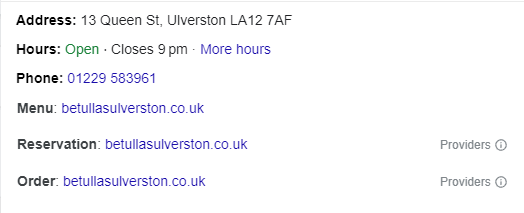
Why does this matter?
Google uses NAP citations as a way to verify the accuracy of your business information.
The more NAP citations they find that list your name, address, and phone number, the more confident they become that your business is located where you claim it is and that your contact details are accurate.
Online Reviews and Ratings
According to PowerReviews, over 99% of customers read reviews when they shop online.
Furthermore, 96% of customers look for negative reviews specifically.
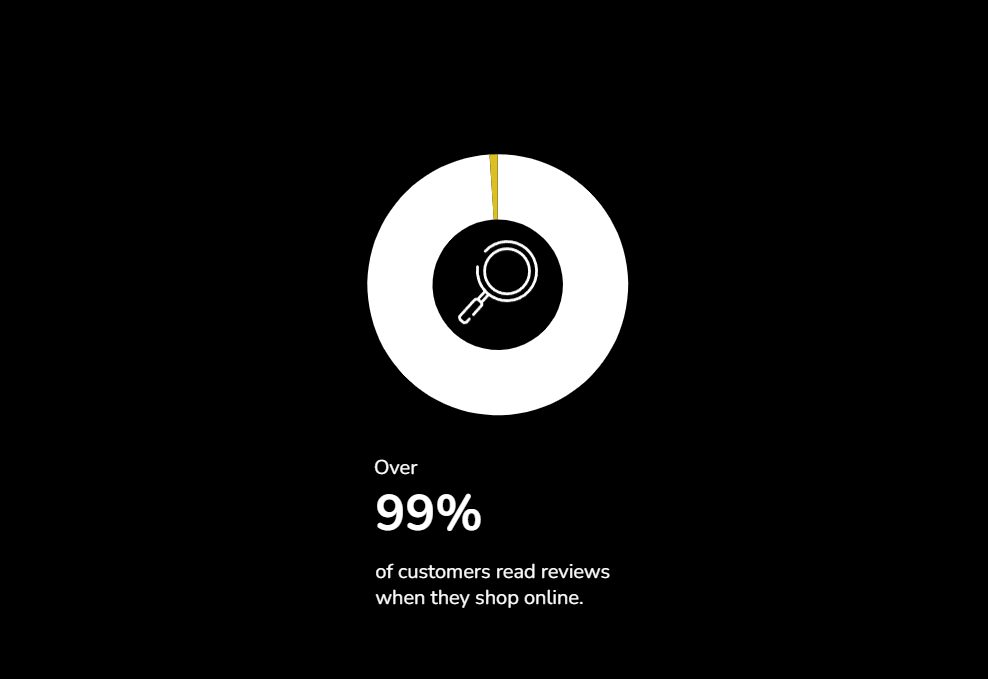
It has been reported that negative reviews on your GMB profile can have a negative impact on your business.
Additionally, Google may also consider reviews on third-party sites such as Yelp.
Positive reviews, on the other hand, can benefit your business.
Reviews, along with your response as an owner, demonstrate trustworthiness to customers, which is an important factor in local rankings.
As a result, responding to all reviews, including negative ones, can aid in your SEO efforts.
Local Backlinks and Citations
Building relationships with other local businesses can be a great way to boost your local ranking efforts. By partnering with other businesses in your area, you can share resources and opportunities for link building.
These are some ideas you could look into:
- Consider reaching out to other local businesses in your industry or related industries to explore potential partnerships.
- You could collaborate on a joint marketing campaign, sponsor a local event together, or even just cross-promote each other’s businesses on social media.
- Build relationships and earning backlinks from other local businesses to improve your website’s authority and relevance in the eyes of Google.
Partnering with other businesses can also help you to build a stronger presence in your local community and attract more customers to your business.
Local Content Optimisation
Use your location-based keyword at a key spot on your page (usually at the very top of your page).
In my experience, this single tip can HELP a lot with local rankings.
All you need to do is make sure your local-focused keyword shows up at the very top of your page in a headline.
Something like this:
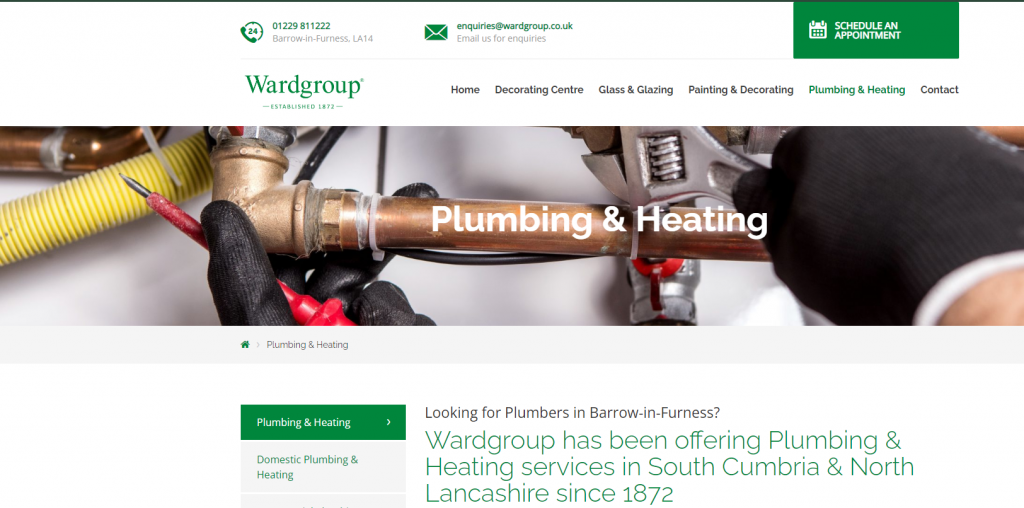
And I recommend wrapping that title in an H1 tag so Google crawlers know how important it is.
That said:
This is half for UX signals and half for on-page SEO.
How come?
When a local searcher lands on your page, they need to know that you serve their area within 2 seconds.
People want fast clarity nowadays so you have to provide it.
And when they see a headline like this, they’re probably going to go back to the search results to find a business that’s 100% focused on their area.
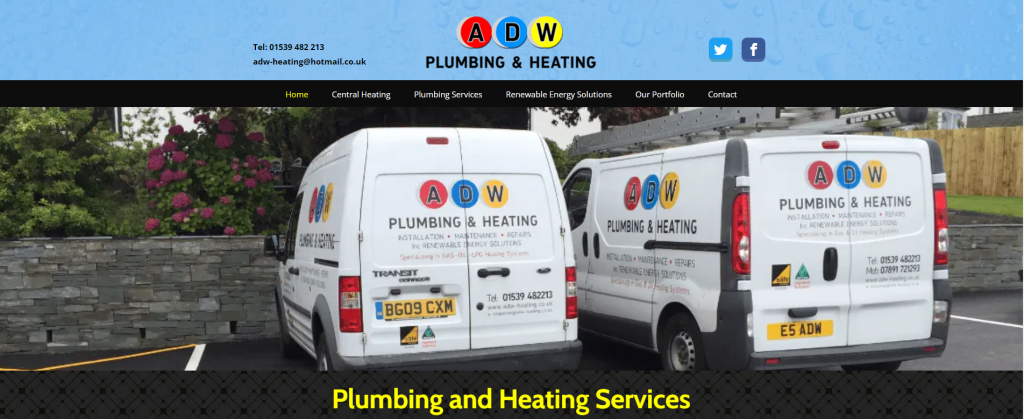
On the other hand, a headline like this makes someone say: “Great. They serve Barrow. This is the place to be.”

Google My Business Profile
Now, it’s time to perfect your Google My Business profile.
Like I mentioned earlier, getting your business listing in Google and ensuring it’s properly optimised is super important in the rankings for local results.
Keep Everything Consistent
When it comes to your Google My Business profile, keeping all your information consistent (the exact same) is huge!
Not only should your GMB info match your website’s, but also every other NAP citation you have.

When Google sees that your business info is consistent in your GMB, on your website and on other sites like Yelp, they say: “Nice, this business looks legit. And their local info all matches up. We like that.”


But when your local business has one address on their GMB and a different one on the website, that is a BIG no for Google:
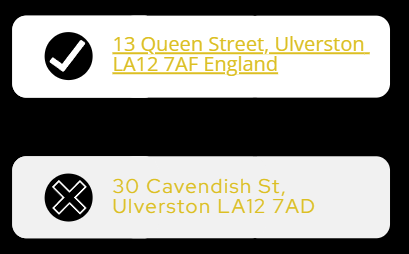
If you ever change your business name, physical location or phone number, it’s so important to update the new information as soon as possible. Don’t forget to also update your citations on local business directories.
I also recommend double-checking that your business’s address is written out the exact same way on your GMB profile and everywhere else it shows up.
Fill In All The Details
Google tells you how far you’ve completed your profile.
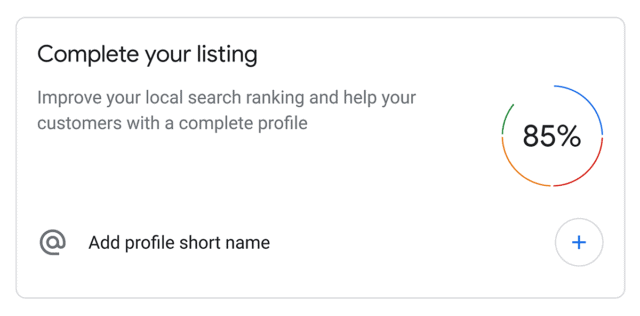
BUUUT in my opinion, Google can be very forgiving when it comes to this score.
It’s basically just a low benchmark for the basics.
You will need to go above and beyond to get those keywords you want.
This isn’t too complicated so I will just break it down into 3 points.
- Category Selection – make sure your category is completed and matches one of the selections offered
- Don’t forget to add in secondary categories as they can directly impact keywords and searches.
- Fill in the “Services” and “Products” tabs as this tells Google what you are actually selling.
Keep Important Info Updated
Make sure to always check that your business info, such as opening hours and holidays, are accurate and updated.
You don’t want someone to show up to your store only to find out it’s closed, which can lead to an angry customer leaving a bad review.
So, make it a habit to update any changes in your Google My Business profile.
Get More Reviews And Reply To The Ones You Get
As I talked about earlier, reviews are a major factor in how Google ranks local businesses.
So, getting as many positive reviews as possible is a great idea.
However, it’s also important to reply to every review, regardless of whether it’s positive or negative.
Why?
Because it demonstrates that you’re engaged and committed to your customers.
For example, even a short reply like “Thank you for your kind words!” or “We’re sorry to hear that. Please contact us so we can make things right” can make a big difference in how your business is viewed.
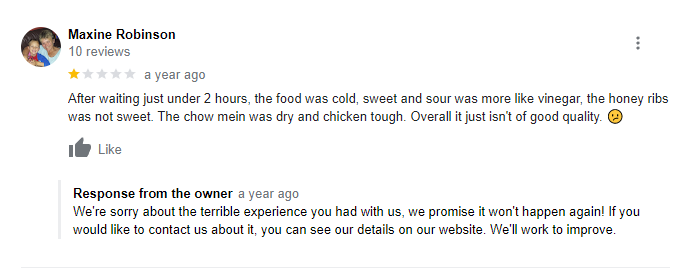
If you’re thinking about checking out China Town (Tang), that response definitely takes some of the sting out of that negative review.
And the best part is that you can easily respond to all of your Google My Business reviews right from your GMB dashboard.
When it comes to getting reviews, there are two things to keep in mind:
- You need to ask customers to leave reviews (most customers won’t without a little “encouragement”)
- You need to make it VERY easy for them
And one of the best ways to do both?
Send customers an email with a review link.
There are two ways to create a review link:
Way #1: Head over here and enter your business name
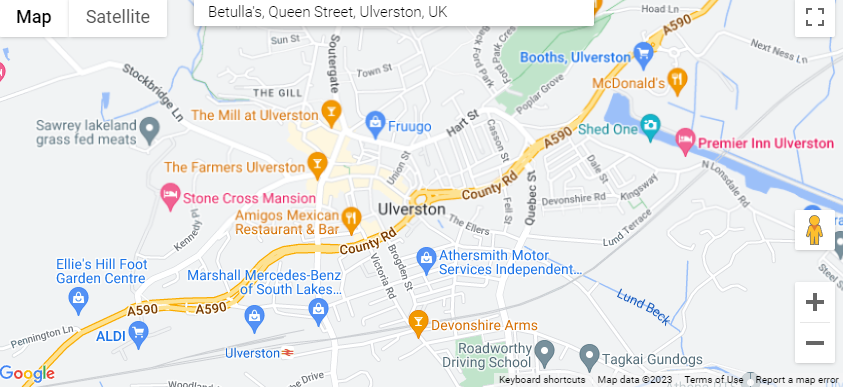
This will give you the “Place ID” for your company.
Then, add your place ID to this URL:
https://search.google.com/local/writereview?placeid=
And when you click on the link, it tells the user to leave a review.
Way #2: Log in to your Google My Business profile and look for the “Get more reviews” section.
There should be a way to create a short URL that you can send to customers 😉
Good stuff!
On-page Optimisation for Local Businesses
Let’s dive into a quick section about how local businesses can maximise their on-site SEO efforts. (Bastion has it’s own local SEO packages and pricing).
Once you’ve covered the basics of traditional on-page SEO like optimising your title tags and body copy, it’s time to take advantage of some specific strategies designed for small businesses that want to attract local customers.
Write Unique Content for Every Location
You probably already know that you want to write completely unique content for every page on your site.
So if your business serves both Barrow and Ulverston, you want the content for each page to be completely different.
But what you may not know is that, as long as you avoid duplicate content, you can create these sorts of landing pages for cities that you’re not physically based in.
This obviously won’t help you rank in the Map Pack.
(You need a GMB profile for that location for that.)
But you can totally rank in the local organic results for lots of different local keywords. And as long as you serve folks in that area, the traffic will convert well too.
See below, this roofing company has landing pages optimised for “Brockton” and “Natick”.
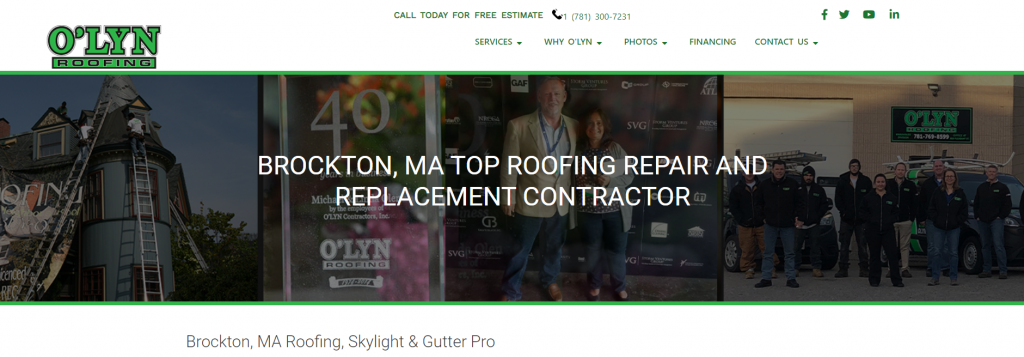
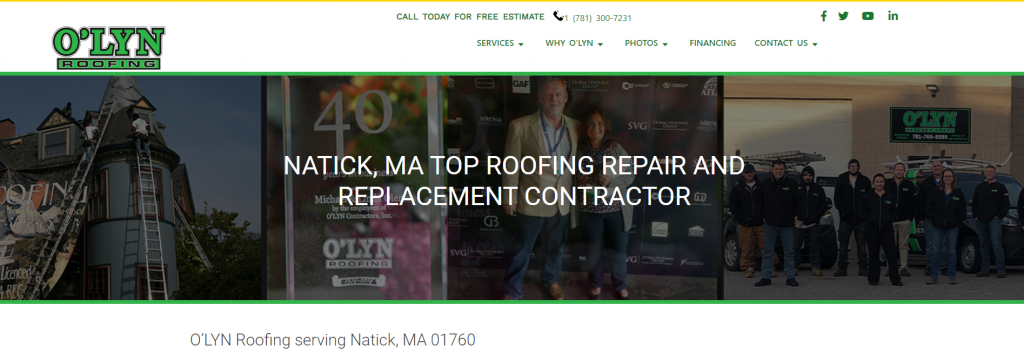
And what’s even funnier is that they aren’t even based in Natick or Brockton.
They are based in Norwood.
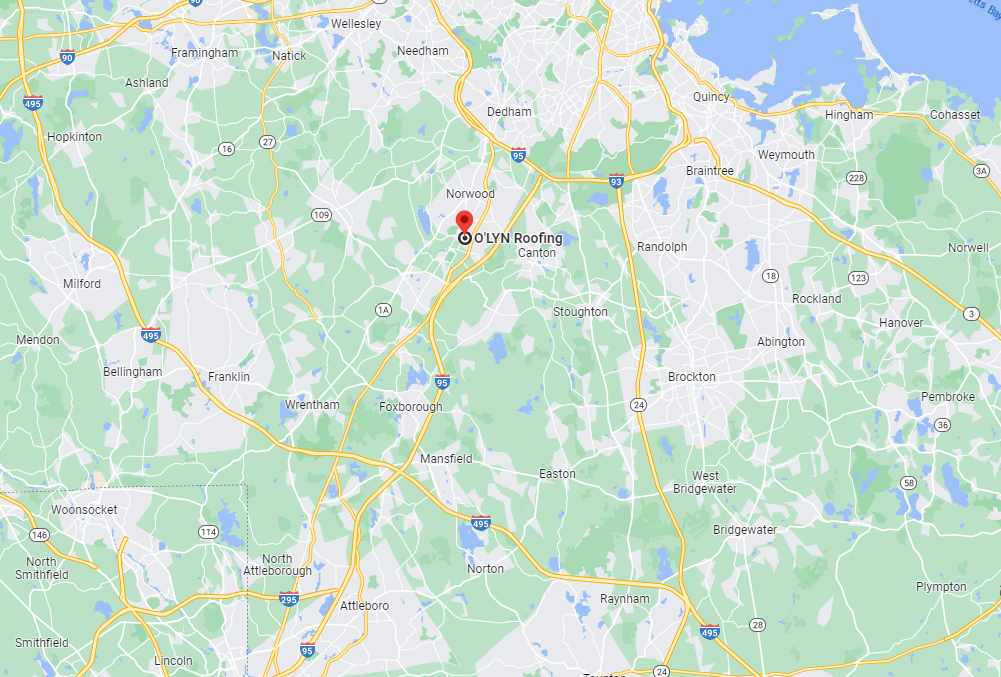
But they still rank in the local SERPs for both of their targeted keywords.

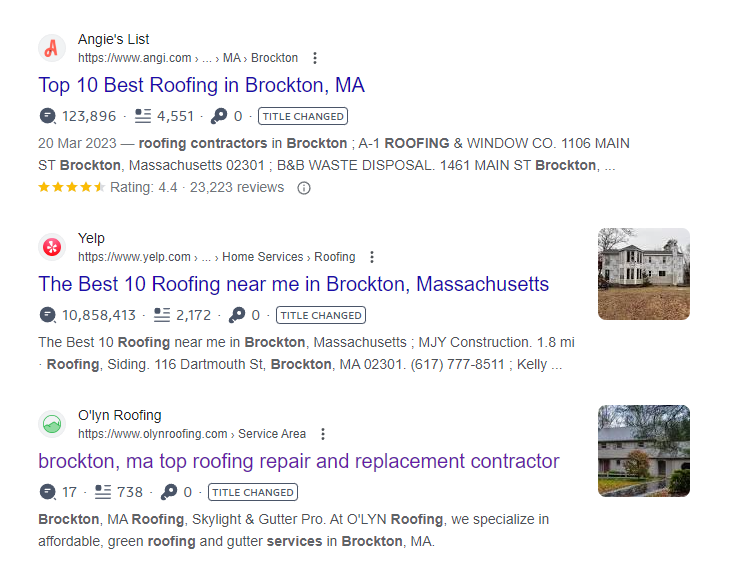

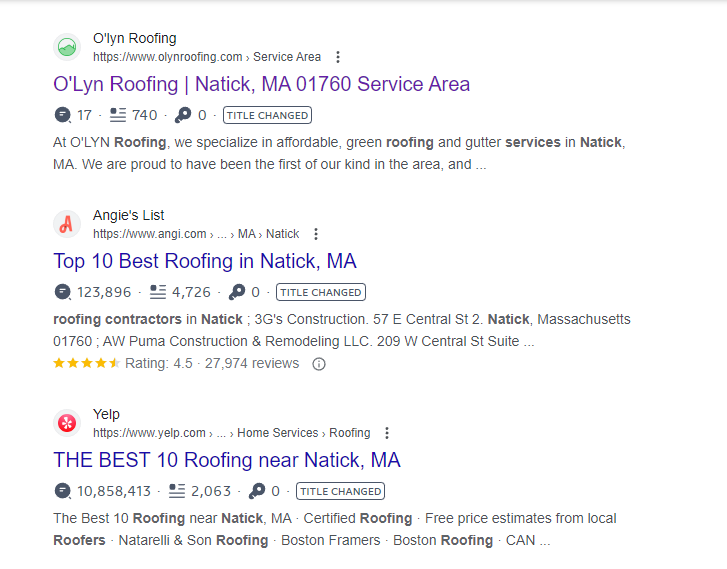
How to Use Schema For Local SEO
Schema Markup for local businesses is a great way to add that extra confirmation for Google about your key information.
There’s an entire category of Schema markup for local business.
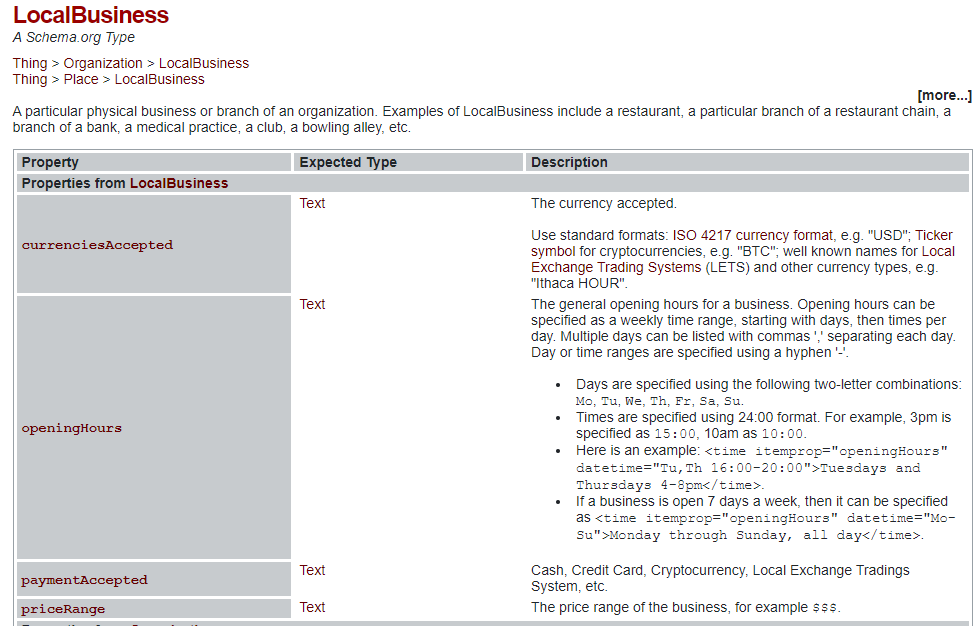
Although it is not a major factor in Map Pack rankings, using “LocalBusiness” markup on your website can still be beneficial.
Review markup, on the other hand, can make a significant difference in the way your search result appears, as it can include review stars and make your result stand out.
Like any SERPs, review stars can turn your standard result into an flashy Rich Snippet for your customers to love.
Local Link Building Strategies
When it comes to building links for your local business, many of the traditional link-building strategies that work for non-local websites also work for local businesses such as dentists, pizza shops, and plumbers.
But the best part is that local businesses have a unique advantage over non-local websites since they are strongly tied to a specific city or area.
This gives them access to a whole bunch of unique backlink opportunities that non-local sites cannot take advantage of.
Other Local Businesses
Here’s the deal: if you own a local business, chances are you already know other local businesses in your area.
And guess what? These relationships can help you with link building.
Before you start sending out cold emails, consider reaching out to people you already know.
Even though you’ll probably need to tap into cold email outreach at some point, I recommend starting off by building links from people that you already know.
So I recommend listing out every:
- Distributors
- Supplier
- Wholesaler
- Contractor
- Neighbouring business or business friend
That you have any sort of relationship with.
Then, look for a specific page on their site where a link to you would make sense.
(This is the step a lot of people forget.)
See below that this paving contractor has a specific page that links to their distributors.
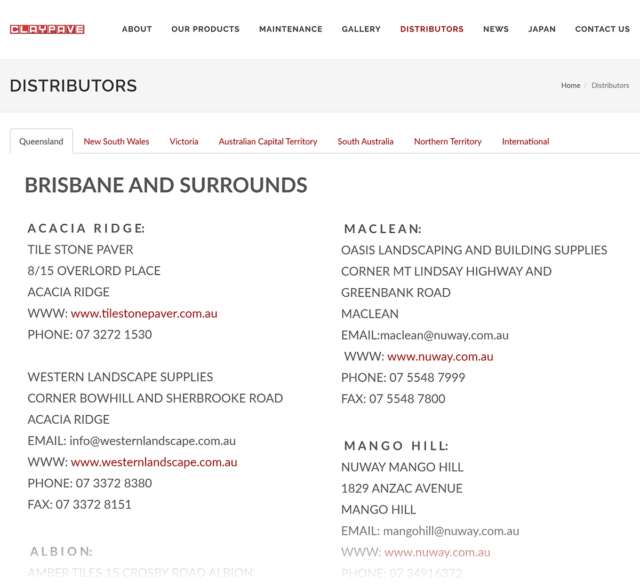
Your Local Chamber of Commerce
Getting a link from your local Chamber of Commerce is like a cakewalk.
It’s one of the easiest links you can get for your business.
Just take a look at this example of a backlink from a Cumbria’s Chamber of Commerce:
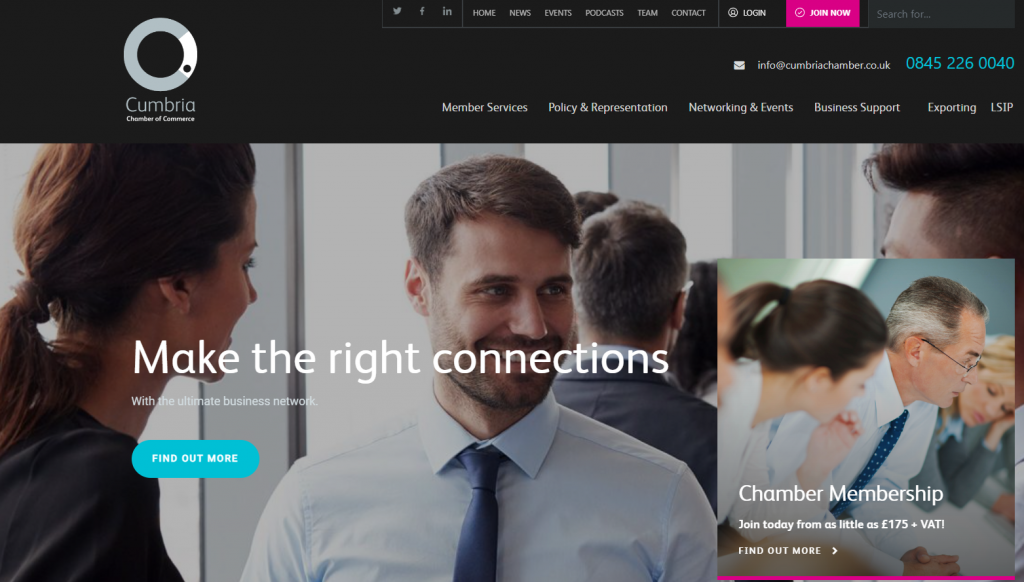
Getting listed on a Chamber of Commerce website varies depending on the Chamber itself. While some Chambers require a yearly fee, others may require you to maintain your membership annually.
Regardless of the process, the relevance of these links is significant, making them worth any effort you need to put in.
Also, it’s worth noting that you usually get a NAP alongside the link, which can provide a significant boost to your local SEO efforts.

Here’s a little tip for you:
If you’re looking to get a contextual link from the Chamber of Commerce, consider giving a talk to the local members.
Since you’re well-versed in local SEO by now, you could share your knowledge in a presentation or discuss a topic that local businesses would find valuable.
This can help establish you as an expert in the field and earn you a high-quality link in the process.
Sponsor Local Events
Another fact for you:
Sponsoring local events can actually get you some great links.
Most local events are always on the lookout for sponsors, and if you decide to lend your support, you’ll probably end up with a sweet link on their event website.
And the best part? Your support doesn’t always have to be a lump of cash.
For instance, if you own a pizza spot, why not donate a few delicious pizzas?
Or if you run a printing company, offer to print flyers for the event.
Get creative with it!
Local PR
Local news outlets and newspapers are HUNGRY for interesting stories to cover.
So if you’re doing something remotely unique or notable, like you’ve sponsored a local sports event, having a grand re-opening or anniversary event, you might (99% will) be able to get coverage from a local reporter.
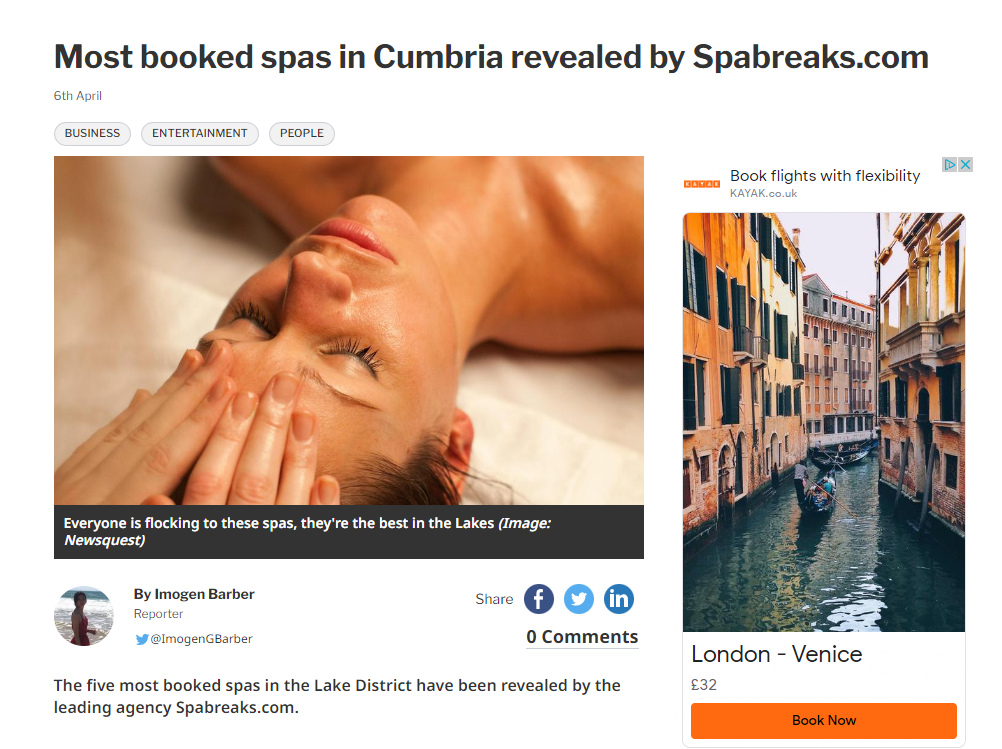
This might be a great opportunity for you to reach out to get your link from their post.
The only thing to think about if you’re going to hold an event or sponsor one, is that you need to give the news site a few days notice as a heads up so they have time to prepare.
Also, if you help them write the story and give them a few key points, it may help going that extra mile.
After all, who doesn’t like their work being easier for them? 🙂
Now:
If you don’t want to go through the struggles of sponsoring or holding an event, you can also be a source for local stories.
“But how do I find these opportunities?”
Twitter.
It really depends where you live for which method may help the most but these two generally always hit the mark:
- #journorequest + “area/city”
- “looking to speak to” + “area/city”
For example, when you search “#journorequest Barrow”, you can see there are a range of PR opportunities.
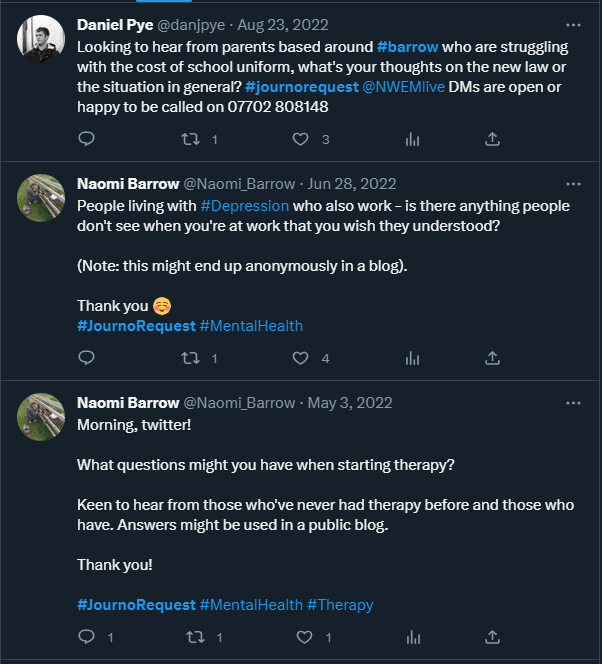
Buuut really for this sort of thing, I would just recommend using local SEO services done by a digital marketing company because you want to be able to establish connections with the News outlets/Press Release sites.
(Hopefully, this guide has shown you just how much expert insight Bastion has about local SEO).
NAP Citations and Consistency
Let’s move on to a tricky part of local SEO: NAP citations.
Getting these citations is like trying to catch a greased pig at a county fair – it’s tough but totally worth it.
But don’t worry, in this chapter, I’ll give you the inside scoop on how to build local citations like a pro.
Run a NAP Audit
You want your NAP data to be 100% consistent everywhere it can be.
On your website.
On your GMB profile.
On business directories.
On local listings sites.
That’s why you need to make sure you run a NAP audit.
There are lots of tools and services for citations available. I personally recommend using WhiteSpark .
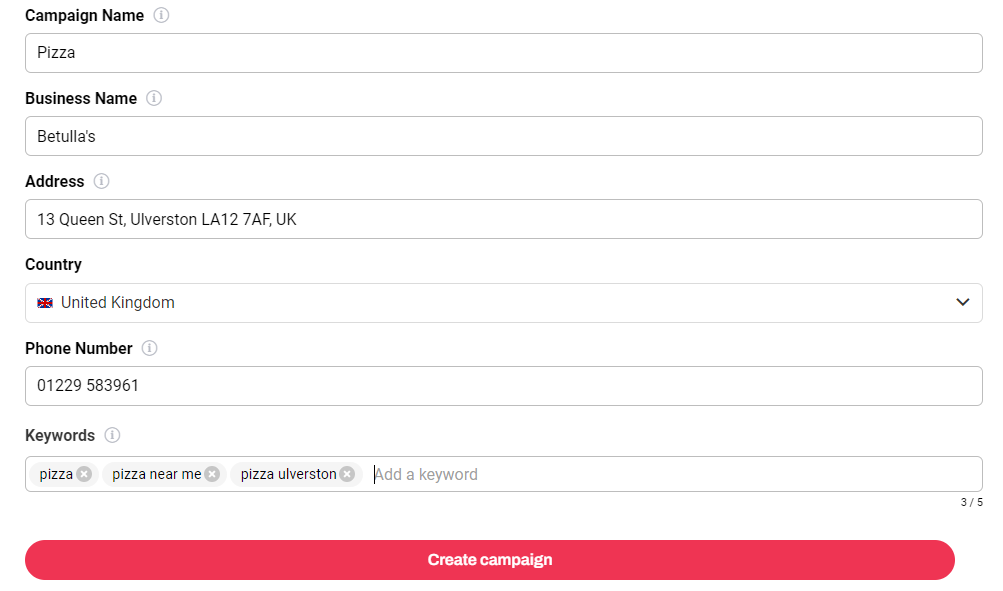
Just enter in your information and begin the audit.
The key two things you want to ensure you have for the audit is
- The current, up-to-date NAP for the business
- Any potential old NAP info you may have had
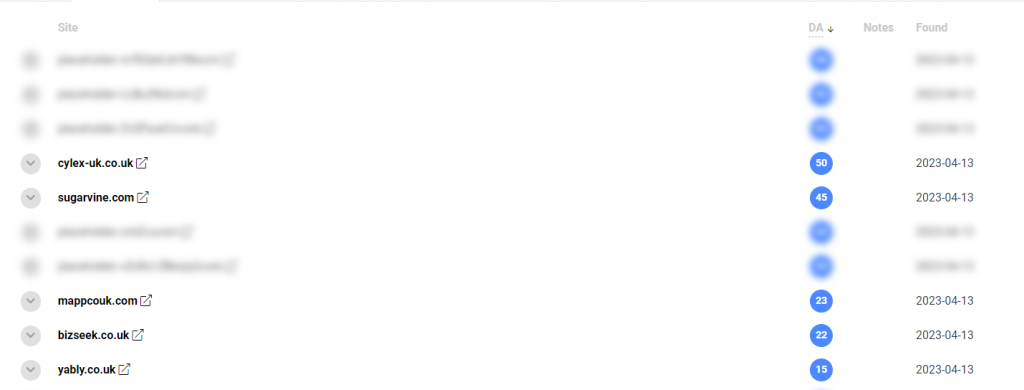
You should get a report similar to this depending on the version/package you are using
Fix and Correct Wrong NAPs
Alright, now that you have a bunch of citations, you need to sort through them and weed out the ones that are incorrect or inconsistent.

(For businesses that have been around for a while and haven’t done a citation audit before, you can expect to have a long list of citations that need updating.)
The next step is to roll up your sleeves and start correcting as many of the inconsistent or incorrect NAP citations as possible.
In my experience, when it comes to incorrect NAPs, there are typically two types:
Citations that you can change yourself (such as your NAP on Yelp).
Citations that someone else has to change (such as a mention of your business on a local resource page).
Updating the first category of citations one by one can be quite frustrating.
Fortunately, there are services like Yext and Bright Local that can help with this process.
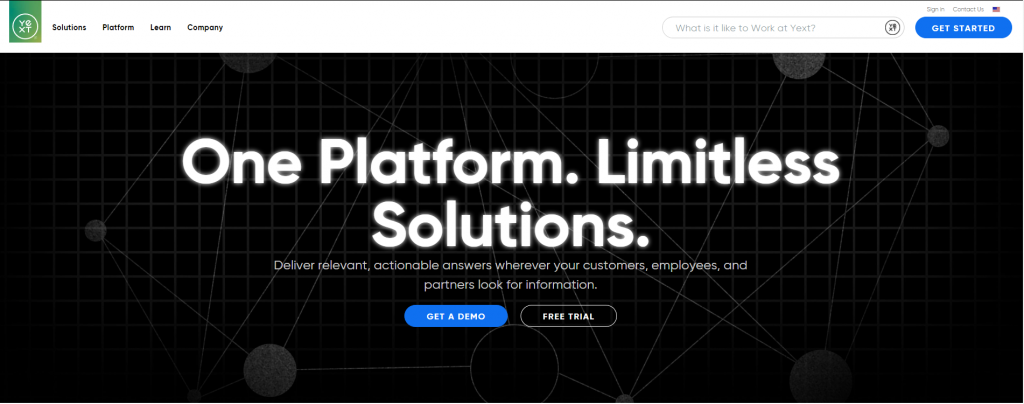

When it comes to fixing citations that require someone else’s manual change, the process involves reaching out to each one individually through friendly and targeted outreach emails.
Reverse Engineer Competitor NAPs
You know what’s cool?
The tools you use for NAP audits can also be used to check out what your competitors are up to.
Just enter their NAP details and voila! You’ll have a list of all the places they’ve been mentioned online.
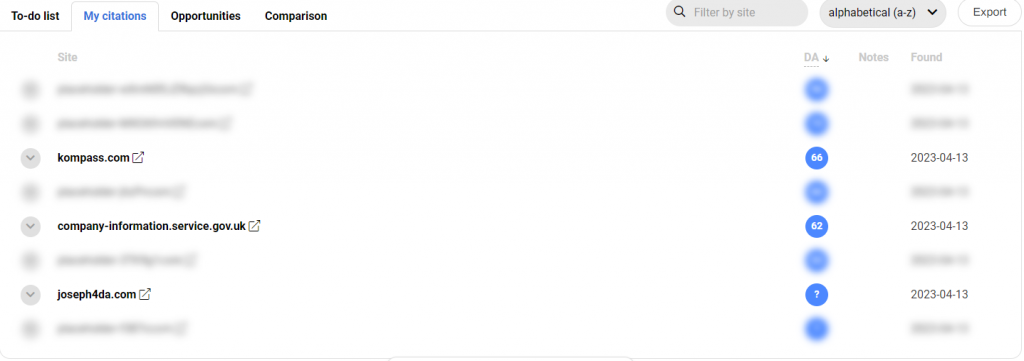
I think this is probably the better approach than Link Intersect. With citation tools, the results don’t necessarily have to link to your competitor’s site to show up.
Finding Link Opportunities with Backlink Gap
Let’s talk about the next step after building citations on popular sites like Yelp, mylocalservices and Acompio.
In my opinion, the best opportunities for citations come from local sites or by having an agency provide their local SEO services for you.
These citations are highly relevant to your business and can really improve your Map Pack rankings. Plus, your outreach to local businesses is likely to have a high conversion rate since you’re both in the same area.
So, how do you find these local SEO citations opportunities?
One option is to use the Backlink Gap feature in SEMrush.
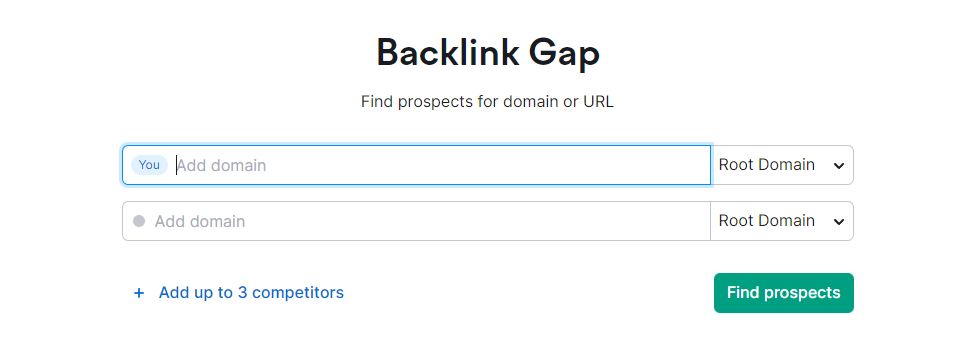
Alright, so check this out.
This tool is called the Backlink Gap and it’s mainly used for building links as you might have guessed.
But, you can actually use it for finding citations too.
And sometimes, you can even get both a link and a citation from the same place.
So here’s how it works in a nutshell:
Start by entering your website and 2-3 of your top competitors into the tool:

Expert Tip: You don’t need to ALWAYS use direct competitors here.
Any business in the local area can work since they are also building citations from local business directories.
Now, you’ll get a report that showcases all the sites that have linked to the competitors you used in the Backlink Gap tool.
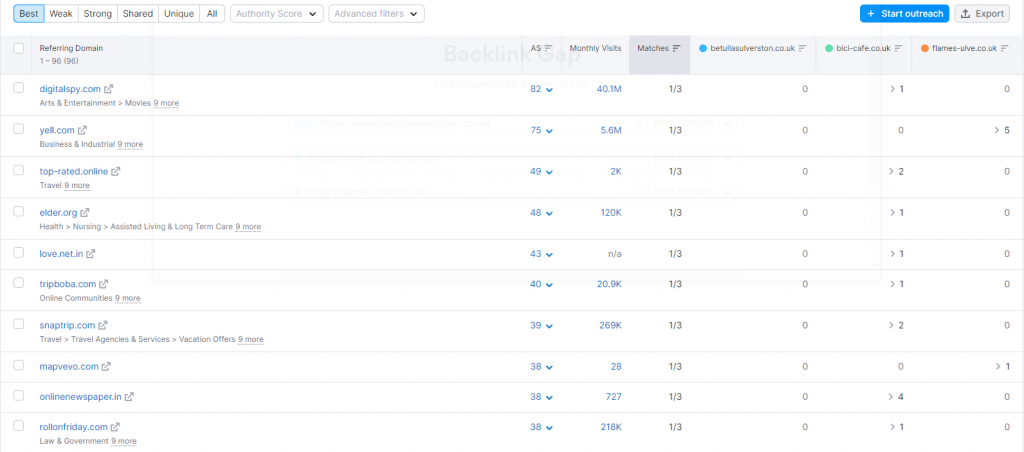
After that, you just have to sift through the results to find the citation opportunities.
This can be a little tricky and time consuming so I would recommend sorting by “Matches” to see which links your competitors share.
Advanced Local SEO Tips and Strategies
Let’s wrap up this guide with some expert local SEO tips, tricks, and hacks.
These tactics won’t replace the foundational work of NAP building or GMB optimization, but they can give you an extra boost in the rankings.
Embed a Google Map on Your Website
To show Google your business’s specific location, there’s a neat trick you can use.
Simply go to Google Maps and search for your business.
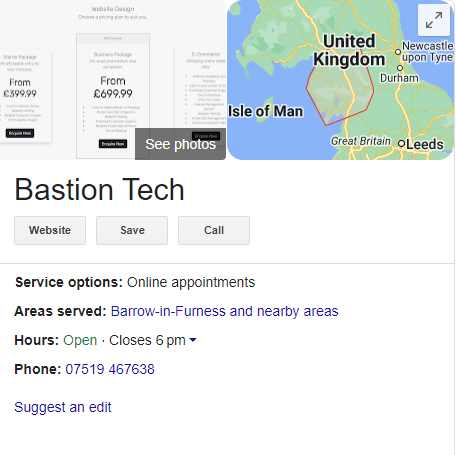
Click on the map in the top right and it will take you to a page that looks like this:
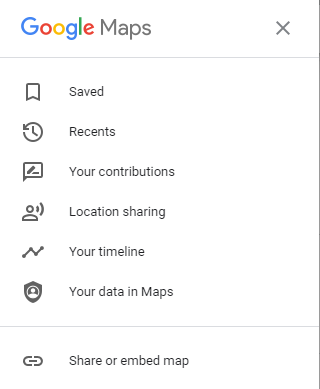
As you can see at the bottom, there is the “Share or embed map” button.
Click it and this will give you an embed code.
Then all you have to do is put your map onto the page of your choosing!
The Tag Team Title Trick
This is one of those classic SEO techniques that still does wonders for local businesses.
All you have to do is tweak your homepage title tag to include a few keywords (2-3 should be enough).
For instance, this business’ home page is optimised around “kitchen remodeling san diego” and “bath remodelling san diego”

This website ranks in the top 3 results for both!
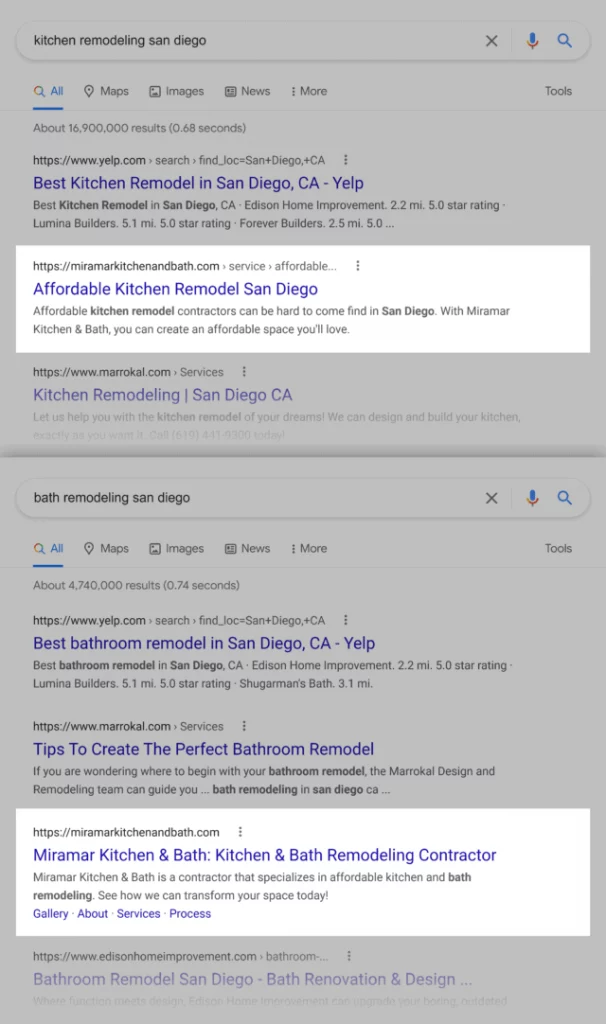
In the world of local SEO, most businesses tend to receive very few links to their internal pages.
In fact, I’ve found that more than 90% of local sites’ backlinks tend to point to their homepage.
To maximize the value of these backlinks, it’s important to optimize your homepage around several related keywords.
This approach, though old-school, still works really well for local businesses.
Optimise Meta Descriptions for Local People
We all know that the description is a powerful tool to boost your organic click-through rate.
Unfortunately, I see a lot of local businesses write keyword-stuffed descriptions like below:

Ohh, dear.
Instead, I recommend writing a meta description like this:

We are [type of company] based in [area] who [what you do]. Click here to learn more.
Expert Tip: Use Google Ads to discover great examples of persuasive and engaging Ad copy.
After all, this copy is proven to get clicks and impressions (otherwise it wouldn’t make sense to use it in their ads).
So you can’t go wrong by learning from them.
For example:
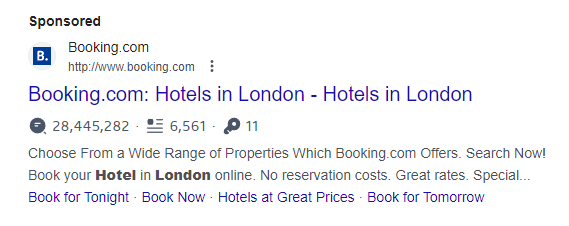
Here, I searched “hotel london”.
See how there is a mix of CTAs (Call-to-Actions) like “Search Now!” and “Book your Hotel in London online”.
Then it lists great incentives/reasons to buy such as “No reservation costs” and “Great rates” however these can still be improved on and targeted more.
Putting Your Local SEO Knowledge into Action
By reaching the end, you should have a solid understanding of the importance of local SEO and the key strategies and tactics you can use to improve your local search visibility.
But remember, this is just the beginning. Local SEO is an ongoing process, and it requires a combination of technical know-how, creative problem solving, and consistent effort to stay ahead of the competition.
So if you want to take your local SEO game to the next level, I encourage you to continue learning and exploring new opportunities to optimise your online presence.
If you need further guidance or support along the way, don’t hesitate to reach out to Bastion for local SEO expertise and help.

